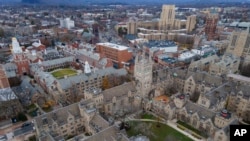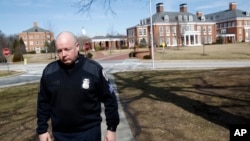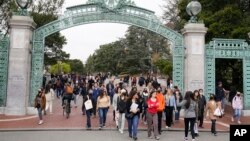Student Union
UPDATE: What Is Electoral College and Why Are Americans Mad At It?

What is the Electoral College? Why are some Americans so mad about it? Why didn’t Hillary Clinton win when she received a larger number of votes than Donald Trump?
Even President-elect Donald Trump's opinions on this American institution have changed over the years:
Calls for Recounts in Three Major States
As of Nov. 29, CNN's popular vote count stands at:
Clinton: 64,469,963
Trump: 62,379,366
Jill Stein, the Green Party Candidate, has successfully funded recounts in Wisconsin and Pennsylvania, and plans on funding one in Michigan (which has just been declared for Trump). The Stein campaign is not doing this to help Clinton, and instead says it is an "Effort to ensure the integrity of our elections."
Clinton campaign lawyer Marc Erik Elias said in a Medium post that the campaign does plan on participating in the Wisconsin recount, "In order to ensure the process proceeds in a manner that is fair to all sides."
This is what Trump had to say on the matter:
Electoral College History
The Electoral College was established in 1787, "As a compromise between election of the President by a vote in Congress and election of the President by a popular vote of qualified citizens," according to the National Archives and Records Administration.
There are 538 total electors. A candidate must win at least 270 to become the next president. Electors are assigned to states according to the number of representatives the state has in Congress, plus two for the senators, says the National Archives and Records Administration.
For example, Ohio has 18 electoral votes. This means that the state of Ohio has 16 Representatives, plus two electors for the Senators.
The current 2016 electoral map looks like this.
Only four presidents before President-elect Trump have lost the popular vote but won the Electoral College. According to the Times-Picayune of New Orleans, the last time this happened was in 2000 in the race between Al Gore and George W. Bush. Gore won the popular vote; Bush became president.
Many Americans are not happy with the way the system works. In a Change.org petition, over 4 million Americans are calling for the Electoral College to make Hillary Clinton the president on December 19, when the electoral college cast their ballots.
This plan would rely heavily on "faithless electors," who FairVote said are, "members of the electoral college who, for whatever reason, do not vote for their party's designated candidate."
Trump mentioned the popular vote on Twitter.
Unless the Electoral College breaks precedent in a large way, it is unlikely that the election results will be changed December 19.
Leave a comment, and join the conversation on our Facebook page, thanks!
See all News Updates of the Day
Proposed settlement offered over financial aid allegations

A group of U.S. colleges and universities have agreed to settle a lawsuit alleging deceptive financial aid tactics, according to a report published in The Hill.
The schools would pay $284 million to plaintiffs who were enrolled full-time and received financial aid between 2003 and 2024.
The schools have denied the allegations. (April 2024)
Universities in Middle East building research relationships with China

As China bolsters research relationships with universities in the Middle East, the United States has taken notice – especially when that research involves artificial intelligence.
Reporting for University World News, Yojana Sharma has the story. (March 2024)
Tips for staying safe while studying in the US

Recent news events have raised safety concerns among some international students studying in the United States.
Adarsh Khandelwal, writing in the India Times, has tips for staying safe from the moment you arrive until the day you complete your studies. (March 2024)
Some colleges are making digital literacy classes mandatory

A 2019 study by Stanford found that most college students can’t tell the difference between real and fake news articles. Amid rampant online disinformation, and the threat of AI-generated images, some schools are making students learn “digital literacy” to graduate.
Lauren Coffeey reports for Inside Higher Ed. (March 2024)
With federal student aid delays, students aren’t sure what college will cost

The U.S. Department of Education’s federal student aid form (FAFSA) experienced serious glitches and delays this year.
Now, many students have been admitted to college, but don’t know how much money they’ll need to attend.
Read the story from Susan Svrluga and Danielle Douglas-Gabriel for The Washington Post. (March 2024)






